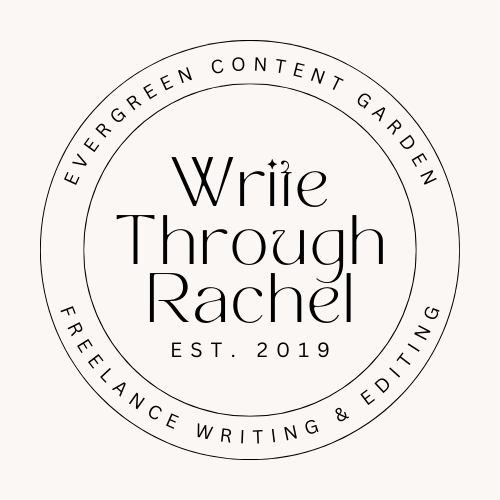I’m about to encounter my first anniversary of going freelance, and I couldn’t be happier with my decision. For me, the pros far outweigh the cons, the hills of success far outnumber the depressions of failure.
“Hustle” is a commonly used verb in my vocabulary. Freelance work has changed me, including my world perspective. And because it’s been such a positive experience, I’d love it if everyone could participate in freelance life.
Aside from my own learning lessons, there’s a more profound benefit to digging into the more common questions about freelance work.
“What do you look for when deciding which companies to work with?
My “must-have” list for potential clients includes an established work process for submitting and collaborating on assigned work, along with these three must-haves:
Reliable: The company client must have regular work hours, so I can have a better understanding of turnaround times and work culture.
Accessible: The company client should be responsive to any issues, questions, or concerns that occur while I’m working on any assignment.
Established Work Process: The company client uses an open platform to work on and share assets and assigned work, so there is no confusion as to where I submit my completed work and who and how they will be reviewing the work.
“Why did you decide to freelance instead of taking a traditional full-time position?”
I’m a very creative person. As such, I’ve worked in a variety of positions. Yet my experience as a freelance writer is the most opportunity-filled, lucrative, and personally-fulfilling job I’ve ever held.
My first thought is that the freelance work structure highlights my strong work ethic. I’m responsible for my daily work and income, so it truly matters how much effort I put forth regularly. (As an aside, it also allows me to set my own pace and my own hours. For example, if I want to get up from my desk at 10:30 in the morning and take a walk around the block, or go out and do a little light gardening, that’s totally up to me.)
My second motivating factor is full independence — This means that I have 100% right, capability, and motivation to set guidelines that work for both my clients and my own work habits. This full independence means that the sometimes outdated work processes that aren’t working within the organization aren’t carried over to the work that I produce.
And thus, if I make sure that my clients are happy, they’ll continue to use my services. So the fact that my income is based on the return rate of my customers means that there’s more motivation to make sure that my clients are happy with my work.
There is no salary cap with freelance work. In many corporate structures, someone with my specific skill set might encounter a cap. But if I define my own role in the world of freelance, then I feel I’m making a more decided mark on the planet.
I am passionate about what I do. It’s the most significant motivating factor for why I chose to embark on my own path as a freelance contract writer.
“What are some of the common myths/misconceptions that you’ve heard about working with freelancers?”
I’ve never heard these adjectives in client feedback or my personal experience. However, I have heard about freelance workers called “untrustworthy,” “lazy,” and even “you get what you pay for” (which refers to freelance quality as cheap).
Of course, these words are hurtful, but not because they ring true — instead, it’s because, as freelancers, we’re already the underdog. We’re already like Sisyphus, always carrying that rock up the mountain because any good freelancer knows that future work is built off of the reputation you create today.
Why would anyone want to put their business, their paycheck, in peril?
Additionally, I was raised by an HR director (my mom). This lady has worked hard throughout my life to teach me how to be professional, diligent, and trustworthy. I do no honor or justice to my own mother by not doing my work correctly and on-time.
In essence, any work I create has a piece of my heart in it.
“What do you want companies to know about working with freelancers? What advice can you offer them?”
Freelance workers are generally very friendly to startup, small business, and corporate budgets. Not only do we not qualify or receive added FTE benefits (like life insurance and 401k’s), but our hourly budget can be moderated and even changed from month-to-month. As a business, this lessens the stress and obligation around freelance talent. Freelance workers can easily be treated as a supplementary option for when your business is doing well.
It’s essential to know your own needs and workflows before you hire freelance talent, as you’ll need to explain to them how things work before they can start doing work.
Communication is the number one enabler of any successful freelance relationship. If you’re interested in hiring freelance workers, you must be responsive to their questions, especially as they get started at your business.
If you’d like to know more about the kinds of information you’ll need to have answered before you hire talent, you should read 7 Questions To Answer Before You Hire A Freelance Writer. And if you have any questions about freelance work or for me, please reach out to me at rachelkoeling@gmail.com.
After years of experience in the corporate world as a writer and editor, and eventually becoming a marketing editor-in-chief at a global cloud services company, I learned that I must stay true to my inner instincts. Now, my focus, intuition, experience, empathy, communication, and professionalism guide me as I navigate the unfamiliar territory of freelance writing and editing. Read more about my writing and editing services.
